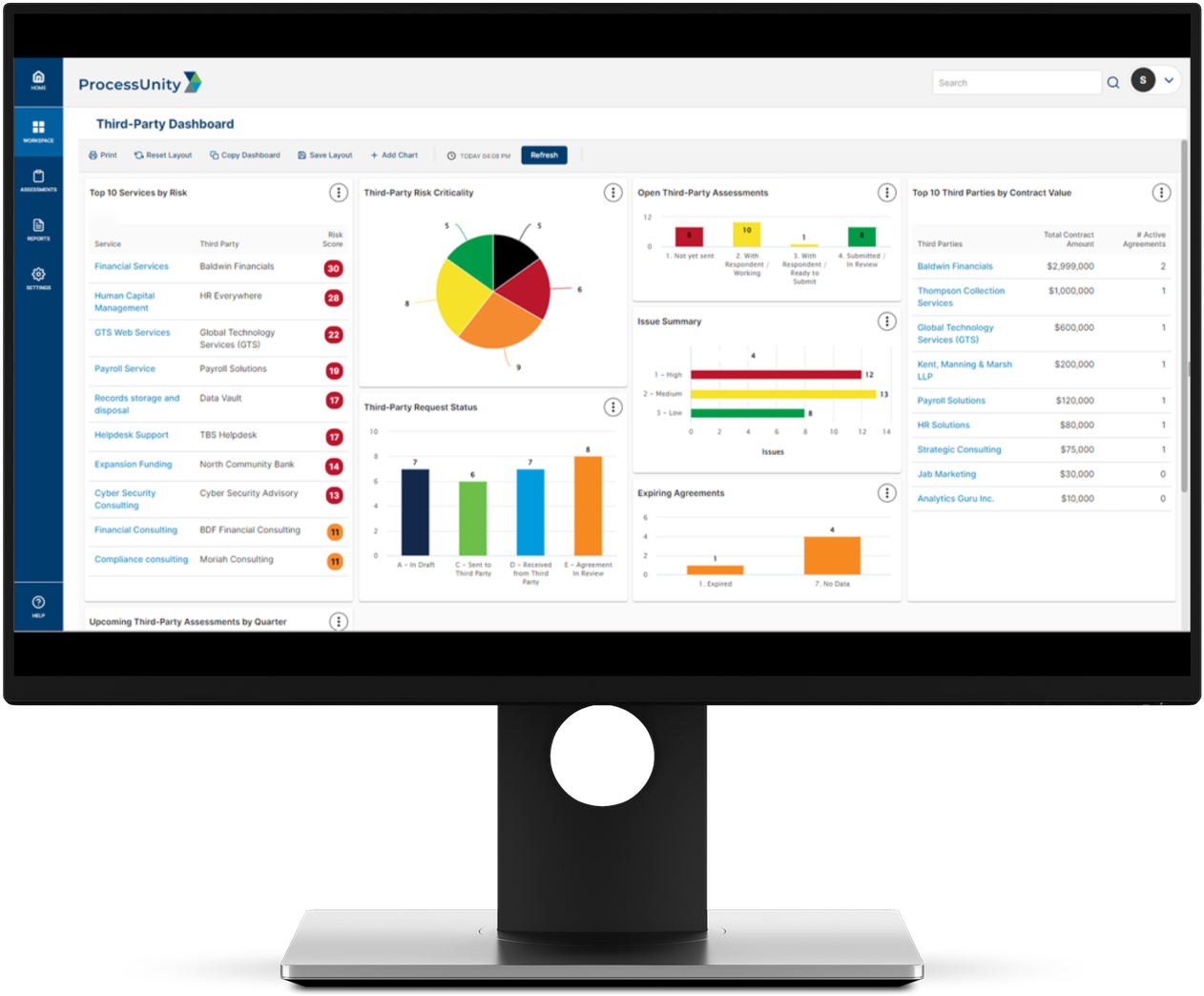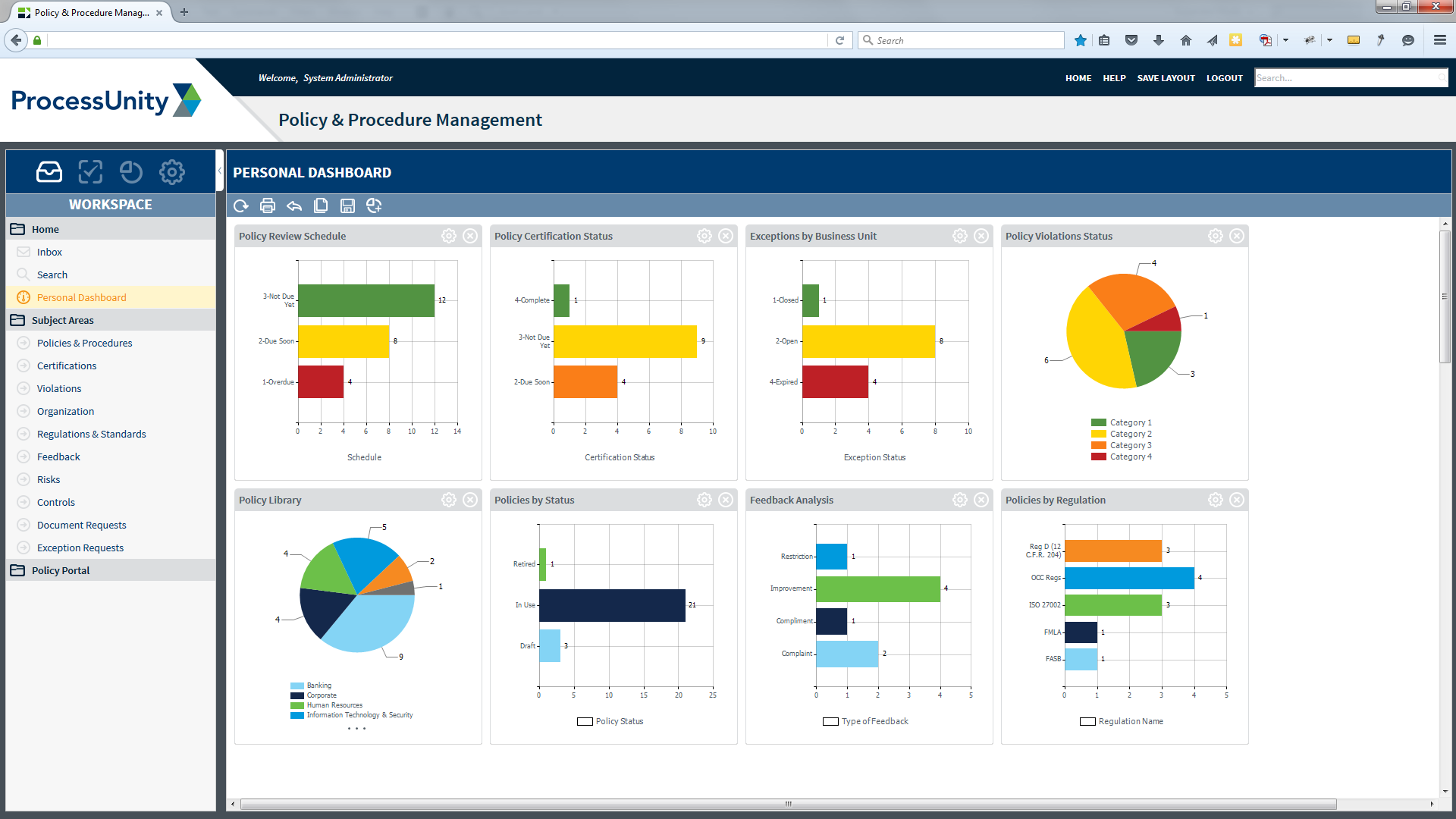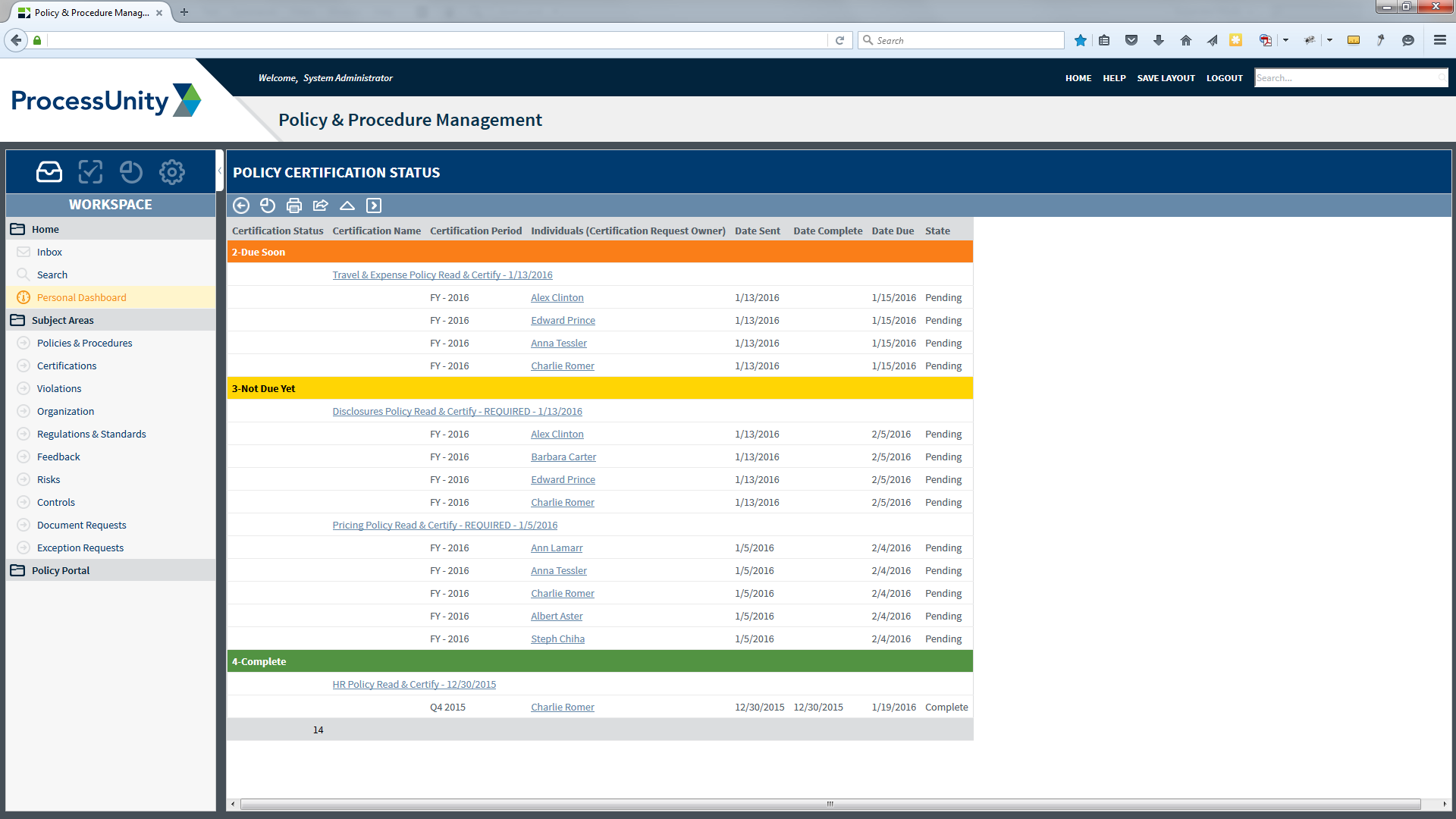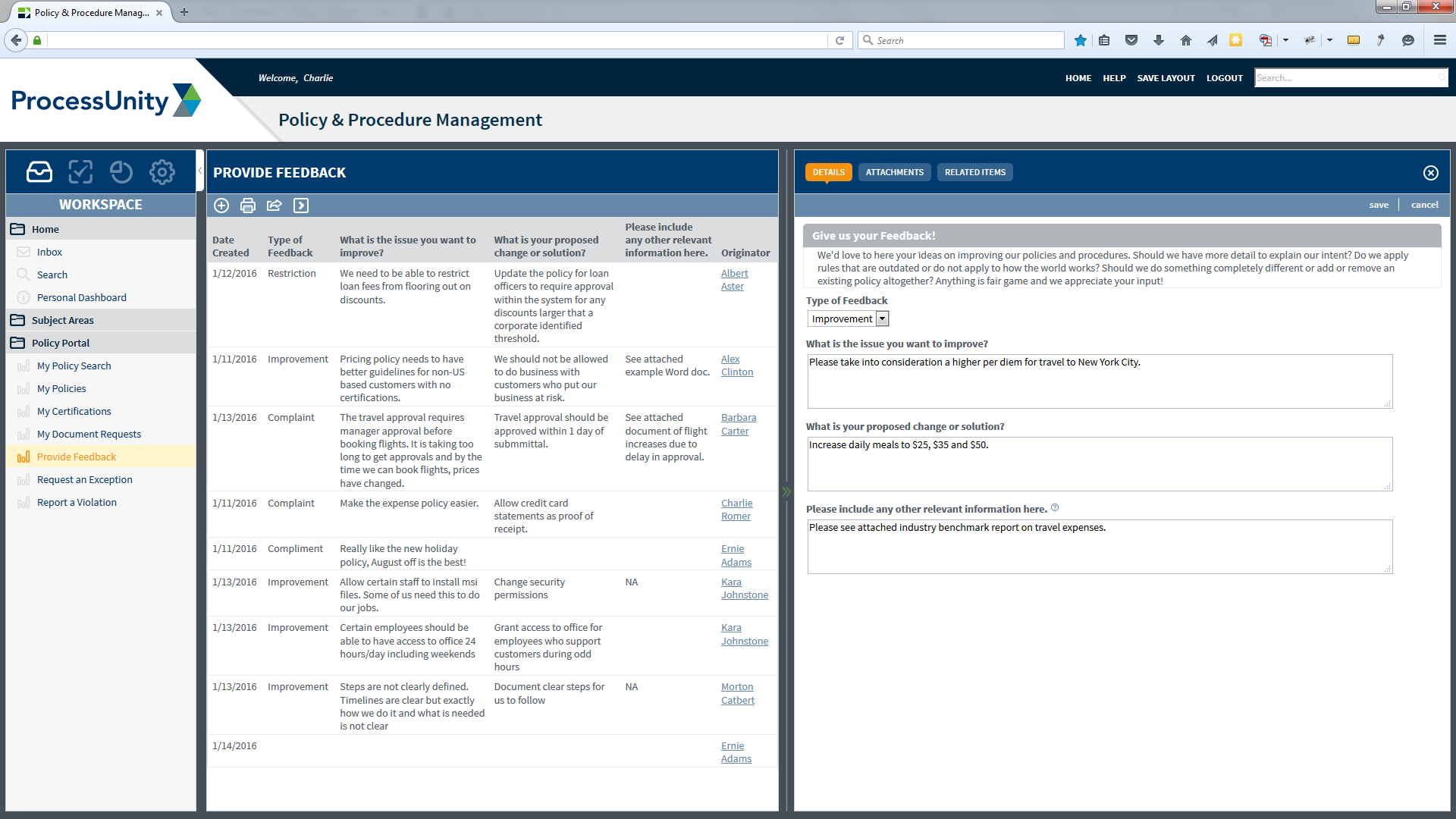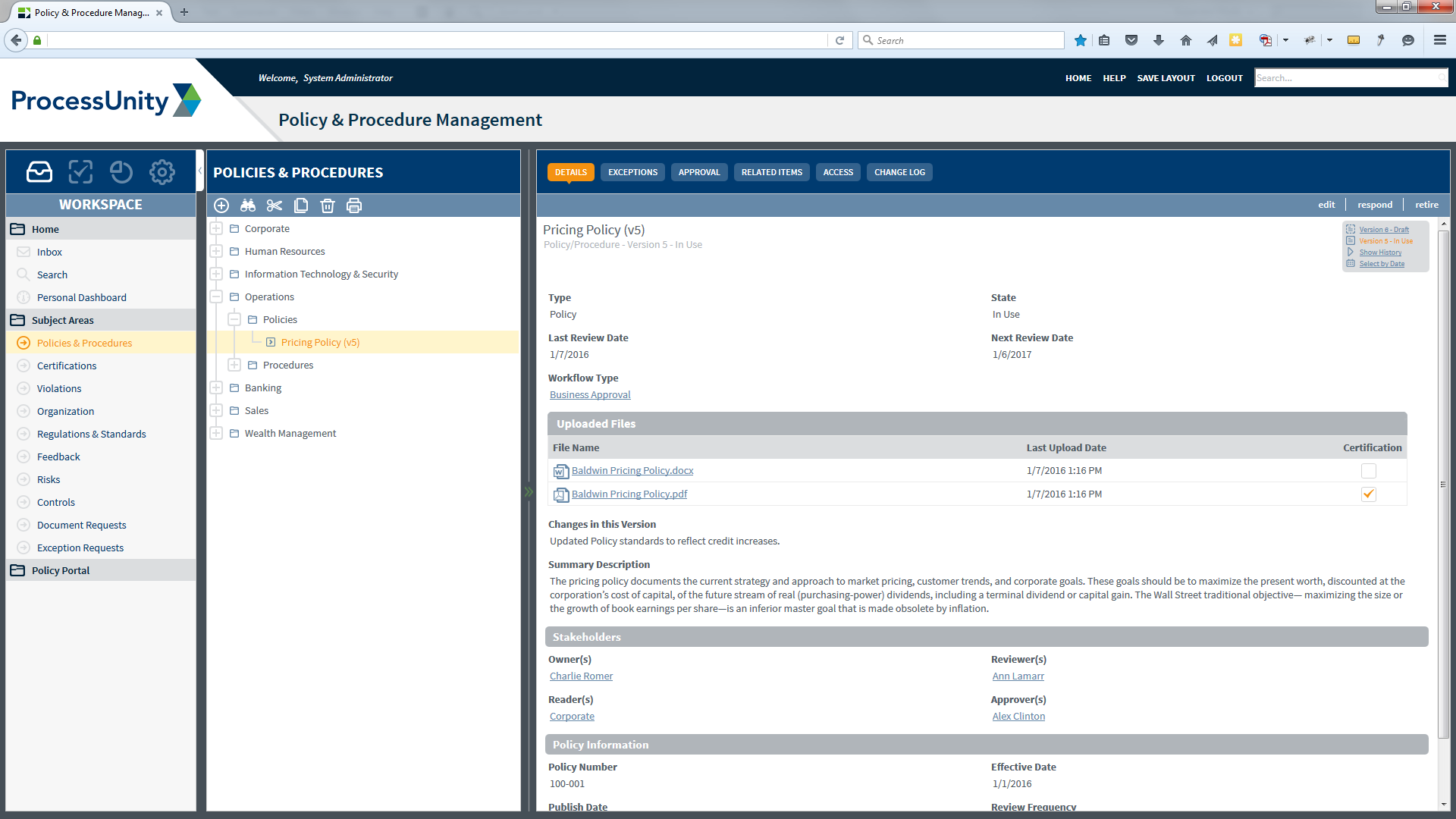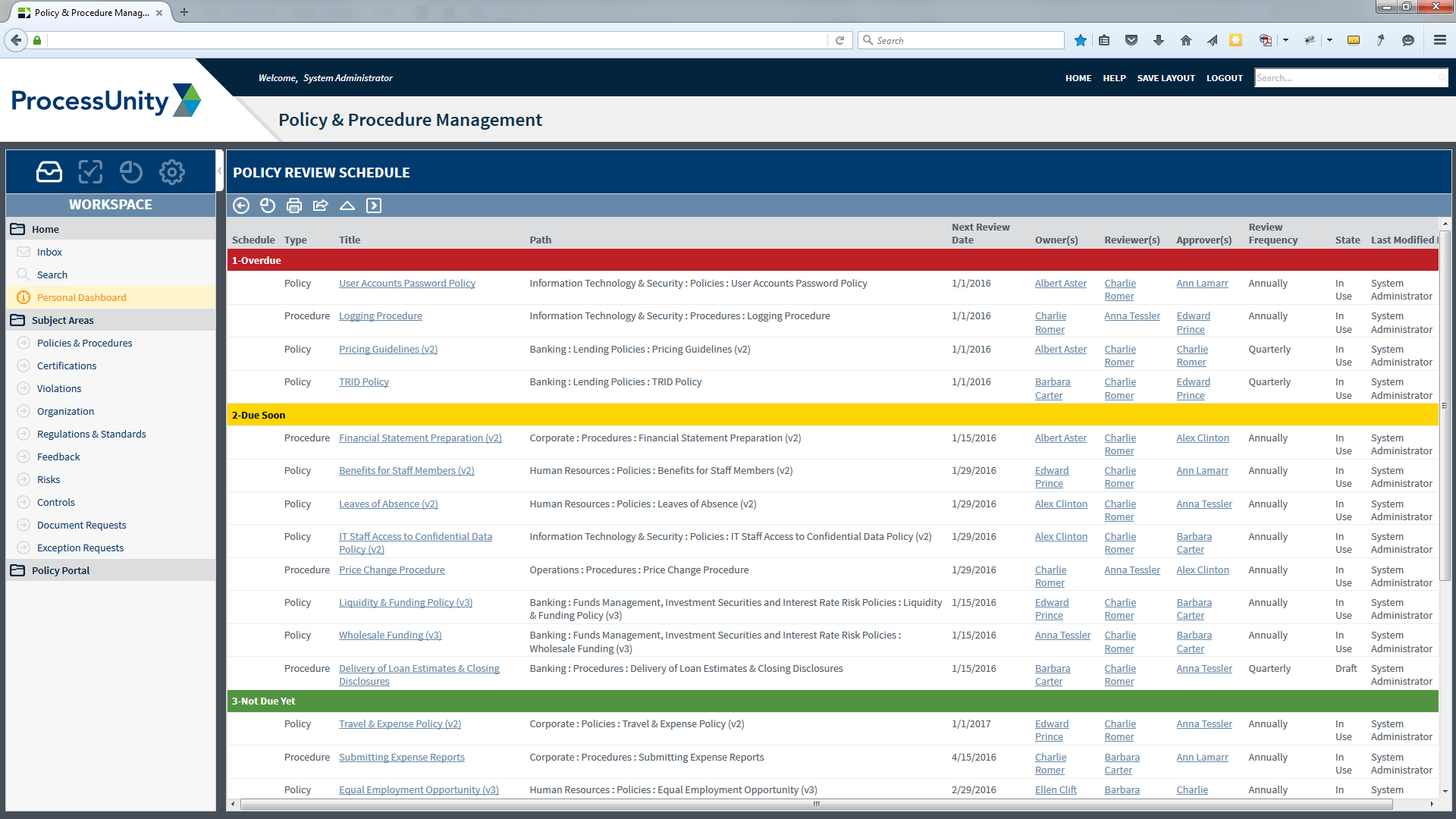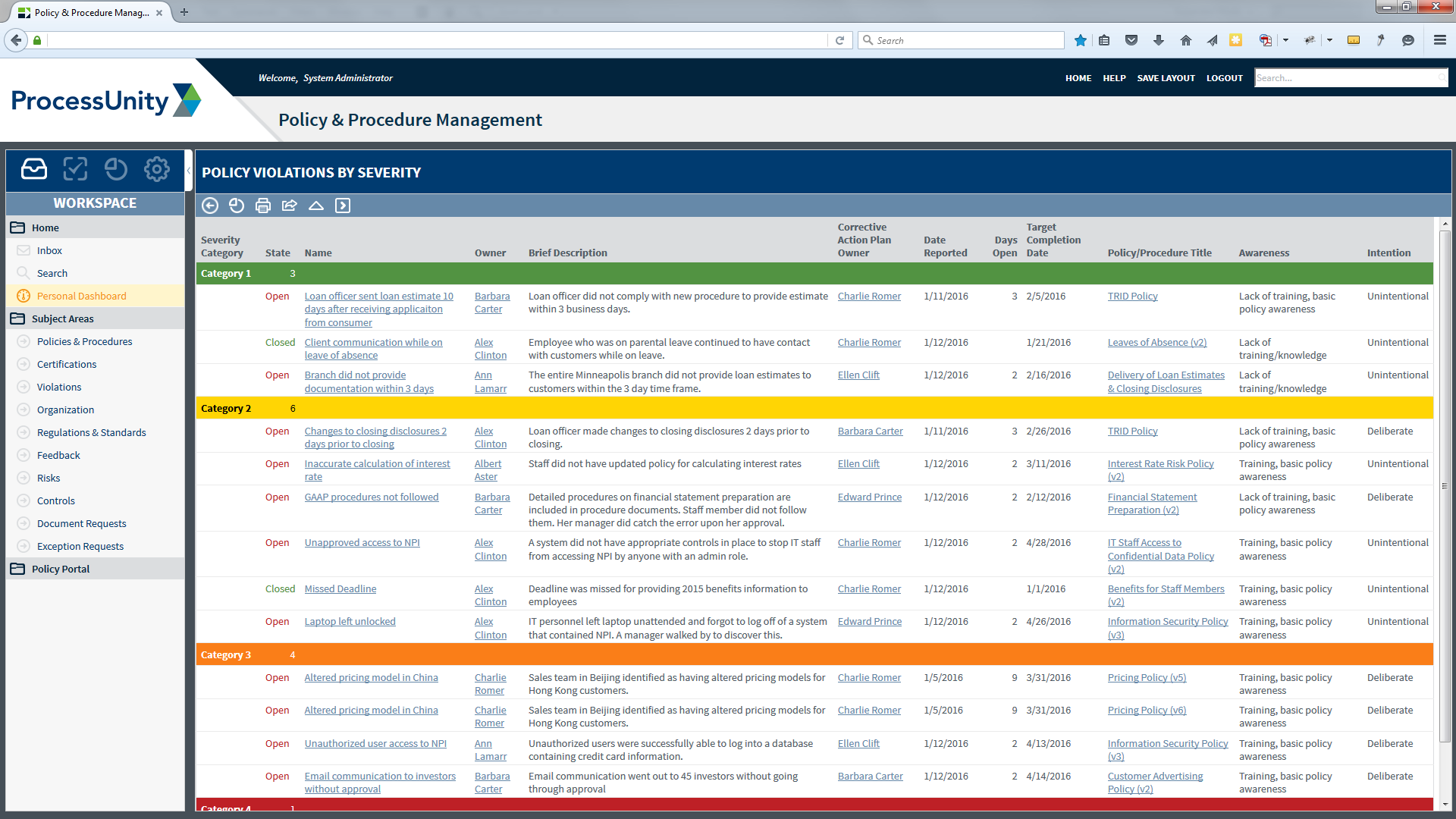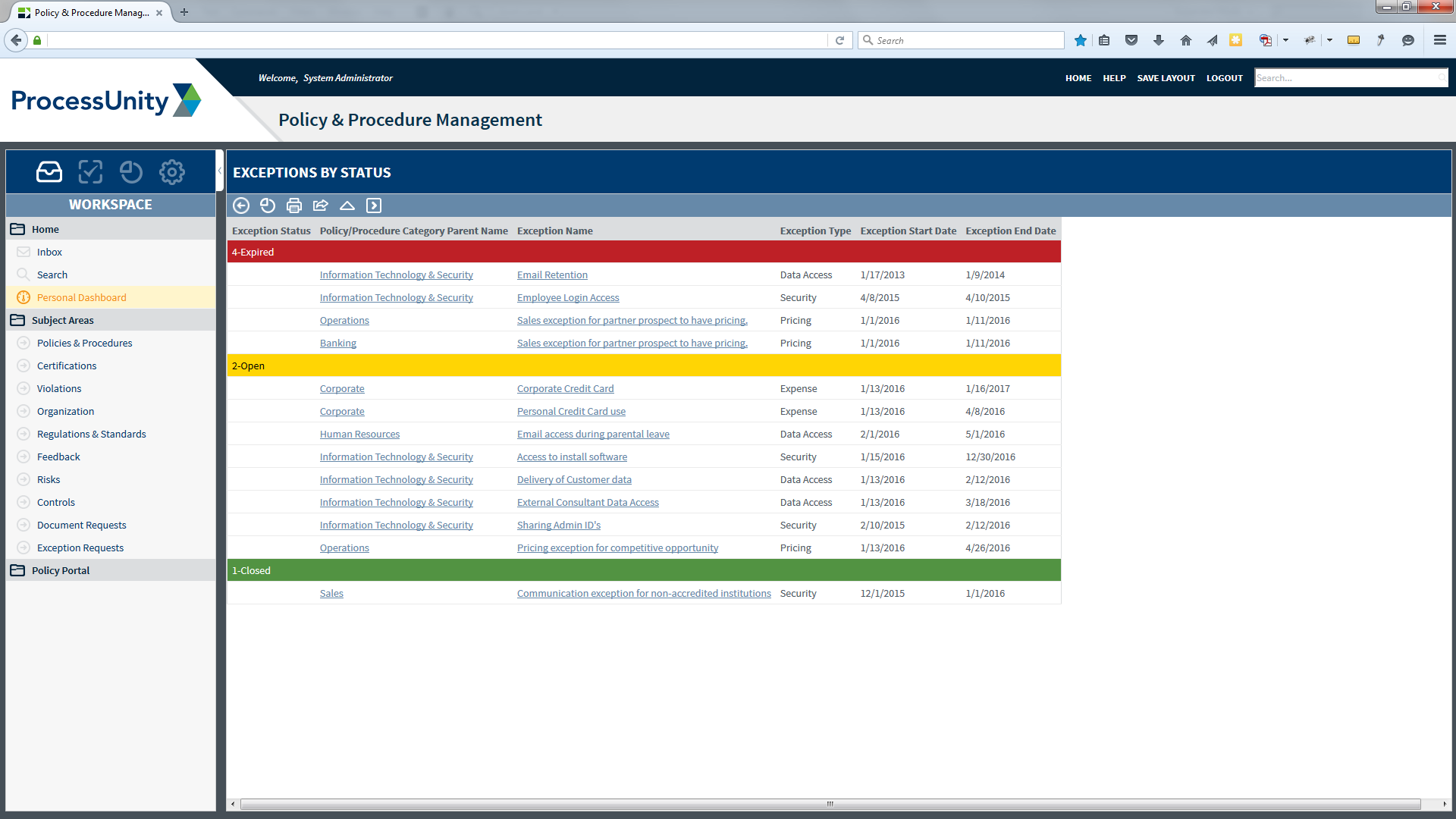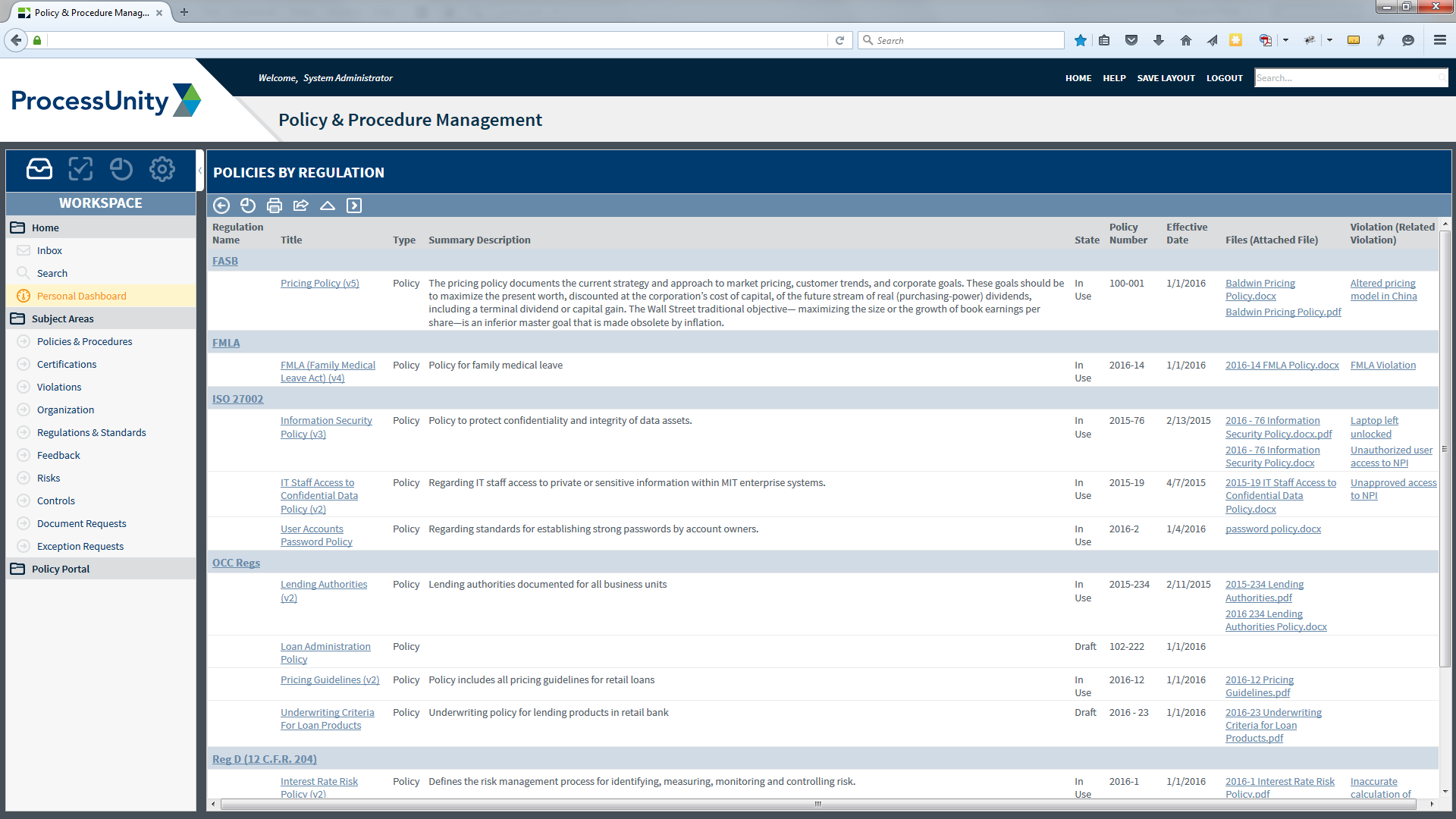Policy & Procedure Management Software
Policy & Procedure Management
Establish a Simple, Standard System for Document Lifecycles
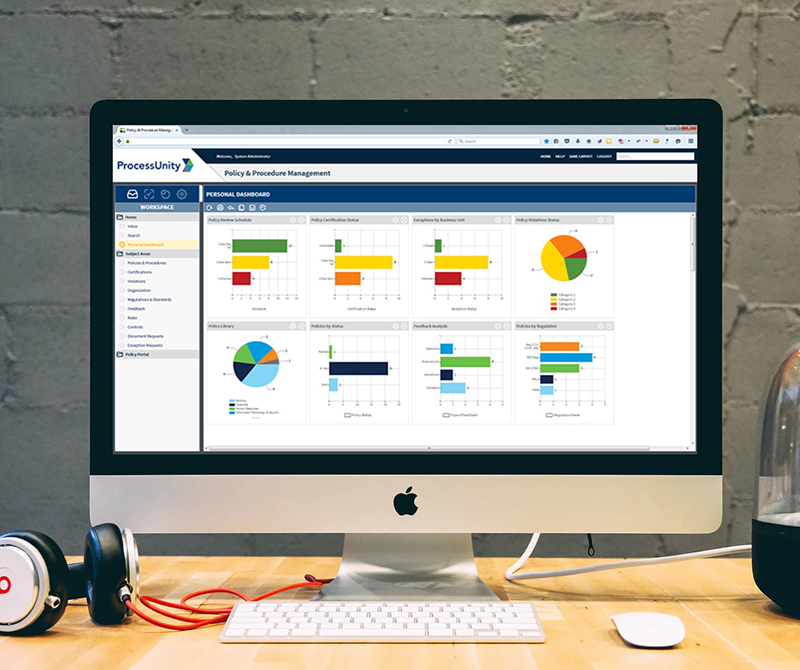
You create policies and procedures to establish appropriate behaviors, track conformance and demonstrate compliance. Your policies, and the procedures that support them, reach far beyond human resource concerns to create the foundation for your operations: how your people transact business ethically and effectively from, for example, the origination of loans and the setting of terms, to the negotiation of contracts and the pricing of offers. But in too many enterprises, ideal procedures are undermined by a lack of practical policy management. Documentation is chaotic; communications confused. And inevitable changes—demanded by regulators and market conditions—can make weak controls even worse.
ProcessUnity’s Policy and Procedure Management solution replaces potential chaos with powerful controls, establishing one simple, standard system for administering policy lifecycles, certifying communications, assessing performance, and managing exceptions and issues. A cloud-based application, ProcessUnity gives everyone in your organization, regardless of location, direct and immediate access to the policies and procedures they need to fulfill their obligations in accordance with your standards.
Policy Lifecycle Management
Streamline Writing, Reviews & Changes
Many enterprises warehouse their policies in digital repositories. But like the three-ringed binders they replaced, these libraries are static, unable to facilitate authoring, encourage distribution, or control policy versions. ProcessUnity’s Policy and Procedure Management software is a dynamic system that facilitates effective action:
- Authoring and approval workflows move policies along the authoring chain—from human resources to legal, compliance, operations, and others—to secure the edits and approvals necessary to achieve alignment with enterprise objectives.
- Version controls simultaneously remove ambiguity and record policy history. By always surfacing the latest version, the platform ensures consistency across the enterprise. By maintaining date stamps on all previous versions, internal and external auditors have documented evidence of what policies have been in place at what times.
- Automated policy collection centralizes policy locations, provides easy and rapid access to documentation, and actively maps policies to their relevant rules and regulations.
- Collect feedback through links soliciting input that can provide “bottom up” insights for bringing policies and procedures more effectively in line with operations.
Certification Management
Distribute Policies, Document “Read & Understood”
Document libraries collect required policies, but automated certification proves those policies have been distributed, read and understood by all necessary parties. The ProcessUnity Policy and Procedure Management solution includes certification tools that help you:
- Manage “read and understood” evidence collected within the software, complete with audit trails that document policy distribution.
- Easily configure and edit multiple personnel lists grouped by teams, business units, functions, and more.
- Produce reports on completion status and push reminders/escalation alerts on incomplete certifications.
Assessment Management
Bring Policy Changes Under Control
Businesses change, regulations change—and policies are obligated to change with them. The Policy and Procedure Management solution helps enterprises stay on top of changes with:
- Annual policy review and assessment alerts, distributed to policy owners, that anticipate deadlines and promote timely action.
- Regulatory change and control assessments, using tools that link regulations to policies, and help policy managers push change requests to policy managers, and track change status.
Exception & Incident Management
Monitor Exceptions; Investigate and Report on Violations
Rules do get broken, both by legitimate necessity and by less legitimate violations. ProcessUnity’s Policy and Procedure Management software empowers managers with capabilities that:
- Allow personnel to submit exception requests, then record why and when approved exceptions were made.
- Report violations and track their status through automated workflows that direct issues to the appropriate authorities and document actions taken for effective resolution.
Procedure Management
Improve Your Ability to Implement Policy
Policies are only as strong as your ability to fulfill them. If policies are the “what” of business operations, then procedures are the “how”: the explicit instructions your personnel need to ensure conformance. ProcessUnity links every policy to the explicit procedures personnel need to execute them effectively, and brings the creation, control and communication tools you need for writing procedures, making changes, reviewing status, and managing exceptions and incidents.
Request a Demo: ProcessUnity's Risk Management Platform
Schedule your personalized demo of our award-winning software and start your journey to a more mature, automated program.
Request a Demo: ProcessUnity's Risk Management Platform
